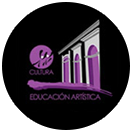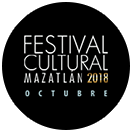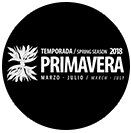During the presentation of the book Entre la Academia y la Insurgencia 1970 – 1980
Mazatlán, Sinaloa, September 10, 2023.- On the night of Saturday, September 9th, at the Museum of Music of the Instituto de Cultura de Mazatlán, the presentation of the book ‘Entre la Academia y la Insurgencia 1970 – 1980’ took place, by Ramón Enrique Morán Angulo, known in the academic and social environment of the port as ‘El Monky’.
The work edited by Tinta Marina constitutes a historical reference on the origin of the School of Marine Sciences (today Faculty), founded during the mandate of Luis Echeverría Álvarez (President of Mexico from 1970 to 1976), at the time of the Secretary of Public Education federal, Victor Bravo Ahuja; in the administration of Alfredo Valdés Montoya (who assumed the government of Sinaloa on October 1, 1970) and the rectorate of Gonzalo Armienta Calderón.
The presidium presentation was given by Dr. Sofía Santos and Dr. Gildardo Izaguirre while M.C. Ramón Peraza, the M.C. Pedro Brito and the Doctor in History, Jorge Briones Franco, accompanied the author with comments on the work.
For almost two hours, members of the first generations of the institution and members of the university community reflected on the political, economic and social context that prevailed in Mexico, at the time the UAS School of Marine Sciences was founded.
The title of the book “Entre la Academia y la Insurgencia 1970 – 1980” alludes to the fact that the institution was founded, not as a result of a government decision or an educational policy – during the presidential regime of Luis Echeverría Álvarez – but in the heat of the struggle of a group of university students determined to build a worthy space for the study of marine biodiversity and aquatic ecosystems, aware of their importance in the production of food for the population.
In the economic context, the emergence of the School of Marine Sciences coincides with the implementation of new technologies for the development of fishing in Mexico (1974) that led to the ‘boom’ in shrimp production and other fisheries, promoted by the Organization of the United Nations Food and Agriculture Organization (FAO).
The book was created from the consultation of newspaper data in the Historical Archive of Sinaloa, personal files, experiences, stories and accounts of characters who fought from various trenches for the founding and refounding of the School of Marine Sciences of the Autonomous University from Sinaloa.
“History and memory, product of the written and oral testimony of actors who, from 1970 to 1980, traveled through hallways, classrooms, laboratories, general assemblies, takeovers of streets and buildings, rallies, internship trips, scientific conferences, academic meetings, sites fishing, political-military militancy, among other activities that were a core part of the difficult job of training fishery biologists with a deep attachment to their faculty, the university and their transformative social work in pursuit of utopia, the SURSUM VERSUS of the alma mater university, the UAS,” reflects Jorge Briones Franco, Doctor in Social Sciences with a specialty in History.
During his participation, Pedro Brito highlighted that ‘Entre la Academia y la Insurgencia 1970 – 1980”’, should be part of the consultation works among the students, academic and administrative staff of the Faculty of Marine Sciences.
Characters such as Hector ‘El Chino’ Araiza and Ignacio del Valle were remembered, who came to live in Mazatlán from Culiacán to join the ECM teaching staff, through whose classrooms professionals of great value for the development of marine sciences have passed, like Marco Antonio Escalante.
Author Ramón Enrique Morán, when talking about his work, stated that the book has a phase that is documentary and another that is living history.
“About 10 years ago I started gathering information to build it, the first level was with my schoolmates asking them if they had information, if they had photographs, any documents from that time (1970-1980).”
“Later I went to the archives but with great sadness (I found out) that El Sol del Pacífico does not have an archive or did not want to lend it; I couldn’t access the Noroeste newspaper archive either; There was no information in the Municipal Archive, or I don’t know what was happening there; I went to Culiacán and at the General Archive of the State of Sinaloa they treated me very well, I thank them very much for their attention, I made several visits checking newspapers and magazines and that gave me information.”
The author remembered that in addition, Fisheries Biologist Fernando Enciso, his colleague at the School of Marine Sciences, has a habit of saving things, of making collections, and he had a very important collection of newspaper clippings, and from there he put together with interviews, the book.
‘El Monky’ shared that one of the main reasons for publishing his book was to give back with this research how much he owes to the University and the School of Marine Sciences – today FACIMAR.
“I owe it to the University in general and I owe it to FACIMAR, and I saw the possibility of showing my affection, my respect to the University and FACIMAR, apart from that, the story is a completely different story from other institutions, and that was For me an important reason.”
In the next few days ‘Between the Academy and the Insurgency 1970 – 1980’ will be presented in the Magna Library of the Autonomous University of Nayarit, in the Library of the School of Biology in Guadalajara, and will be distributed in Sonora, and in institutions government related to fishing.
The author
Ramón Enrique Morán Angulo was born in Culiacán, Sinaloa. He is a Fisheries Biologist graduated from the 1972-1977 generation by the Faculty of Marine Sciences of the UAS, in which he was a professor and researcher (1977 – 2015). He completed a Master’s Degree in Biological Sciences with a Specialty in Aquatic Ecology and Fisheries at the UANL. He has a Doctor in Sciences for Sustainable Development. He founded the Fisheries Ecology Laboratory. Author of several projects on environment, ecology and fishing resources.

















